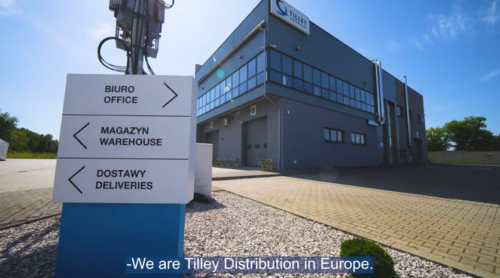
At every link in the supply chain, the health and safety of consumers rely on businesses maintaining strict food quality control. Delivered food products are also only as good as the ingredients they’re made from, and that final product is more than the sum of an ingredients list.
SQF-certified companies like Tilley offer their customers a safe and reliable product that meets quality processes after thorough third-party testing and evaluation.
Suppliers from around the world might contribute to a single food or beverage, and it takes diligence and organization to maintain quality control every step of the way.
What Is SQF Certification?
The Safe Quality Food (SQF) Program is one of the most important authorities in establishing unified food safety standards. SQF certification addresses food quality control procedures in all areas of food production, manufacture, and retail.
The certification system reaches food industry businesses such as:
- Food ingredient manufacturing
- Food packaging
- Food storage, distribution, and shipping
- Farming and animal husbandry methods
- Pet food manufacturing
Earning SQF Certification
The SQF program centers on a complete farm-to-fork audit designed to help food producers feel confident that their suppliers meet established quality standards. In addition to these guidelines, suppliers often create their own quality control methods.
The Importance of Quality Control for Food Manufacturers
There are plenty of reasons to work with an SQF supplier. At Tilley, we build QA/QC into everything we do, with a full staff of chemists with experience in food formulation. Our teams help our clients meet their business objectives, from improving an existing product to developing a new offering.
Reduced Food Production Costs
Consistent quality control and ingredient inspection can reduce waste caused by poor-quality ingredients. Receiving unusable ingredients wastes time and money and can cause production delays. By working with suppliers that proactively address quality issues, food producers reduce operating costs.
Improved Brand Perception
By delivering only the highest quality food and ingredients to store shelves, food manufacturers can also build trust with customers and improve their reputation within the industry. Quality control also helps to prevent recalls and negative press – issues that can ruin a brand name in the eyes of consumers and decrease interest from investors.
Take Pride in Your Products, Raise Employee Morale
Offering safe, reliable products inspire employees to take pride in what they do. Incorporating high-quality food ingredients and maintaining a rigorous quality control checklist can motivate your employees to strive to meet those elevated standards.
Quality Control Checklist for Food Manufacturing
Having a replicable and uniform QC procedure is a vital part of how Tilley Distribution delivers food ingredients to customers. It’s also how food manufacturers can maintain the integrity of those ingredients throughout the production process.
Just a few of the industry best practices Tilley follows are the same we recommend all our partners adopt, including:
- Fixed ingredient specifications. Review all ingredients specifications with your suppliers. All specifications should be well-documented and available internally. This information should include:
- ingredient names
- ingredient attributes
- expiration or usage dates
- Approved suppliers. All procurement managers should have access to an updated list of approved suppliers. Some ingredients may only be approved to be sourced from specific suppliers. Only work with SQF-certified facilities to ensure safe products.
- Product and manufacturing standards. Create clear and detailed standards for ingredients, as well as your final product. These standards should focus on characteristics such as shape, weight, color and volume. Establish standards and procedures for rejecting ingredients or final food products that do not meet quality control standards and record why the product failed.
- Standardized packaging and labeling. Establish a clear procedure for receiving food ingredients. This should include proper labeling, storage and tracking date-of-usage information from the supplier. Continue similar inventory practices once your final product is packaged and ready for distribution.
- Laboratory analysis. Never stop testing and monitoring the quality of our ingredients, and we encourage our customers to do the same. Food manufacturers should frequently test samples at random to monitor production and record test results. This information can help improve ingredient sourcing and product engineering, as well as improve production procedures to reduce waste in the future.
Make Quality Your Highest Priority
At Tilley Distribution, we’ve developed a proven quality control system to ensure our customers know what they’re getting is safe, standardized and ready to implement. Our in-house laboratory tests samples regularly to better serve our partners. To learn more about our strict quality standards, contact a Tilley representative today.
